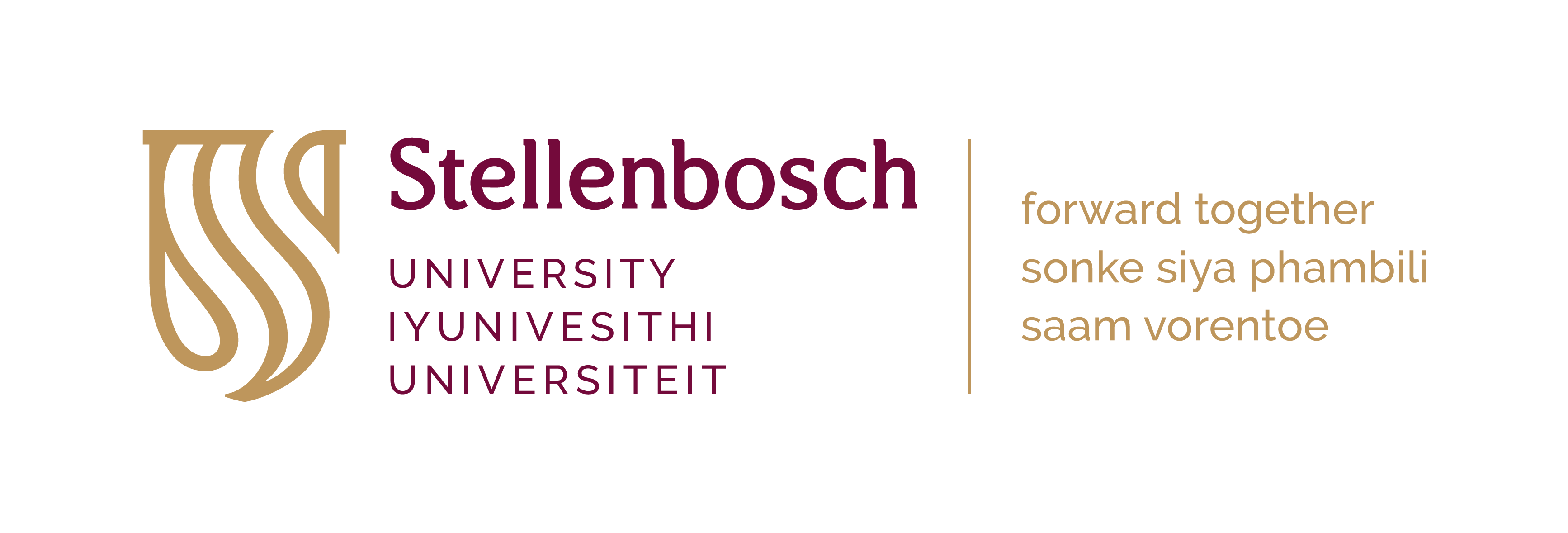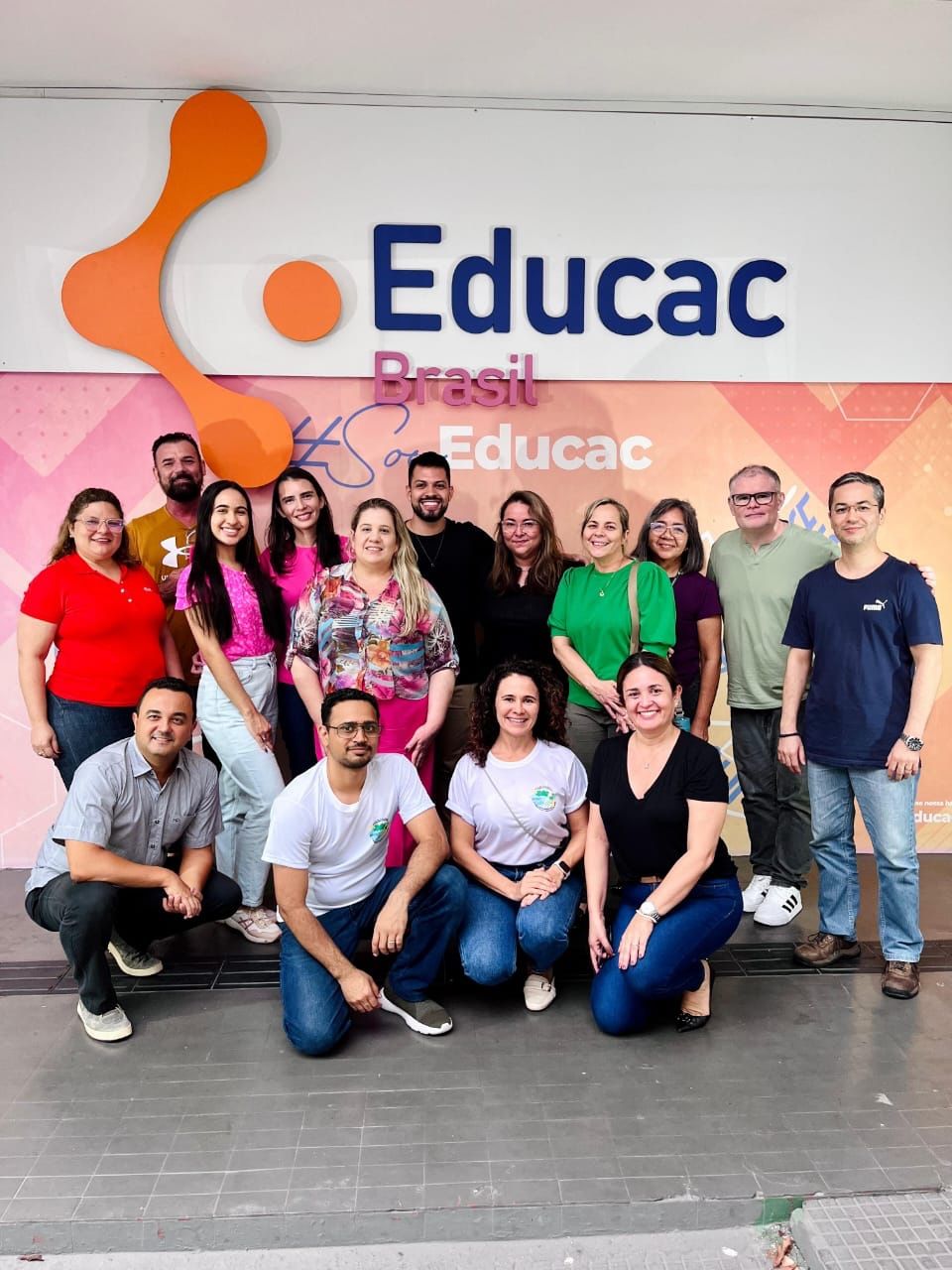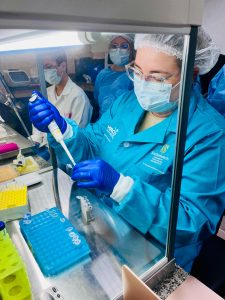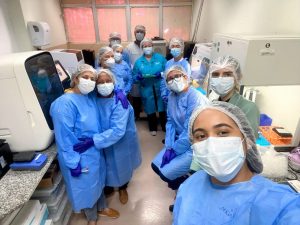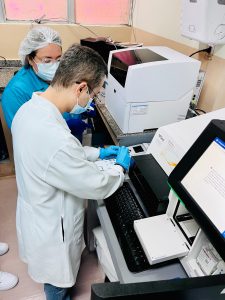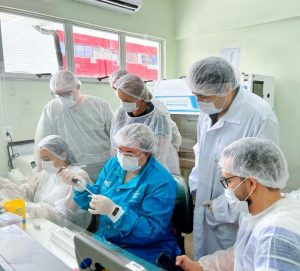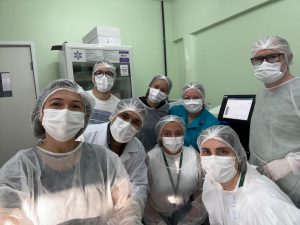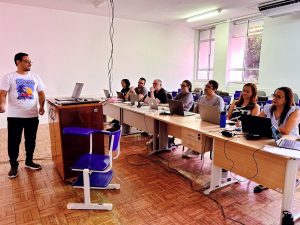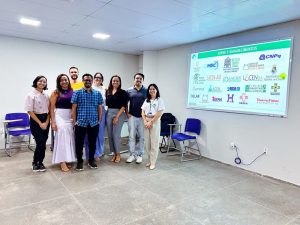[:en]Written by Dr Emilyn Costa Conceicao
Brazil and South Africa share more than economic ties as members of the BRICS bloc; they also face significant public health challenges as both are included on the World Health Organization’s list of countries with high tuberculosis (TB) burdens. Investing in advanced technologies to improve TB diagnostics and surveillance is essential to achieving the global goal of ending TB.
Leveraging Expertise: From COVID-19 to TB
In 2024, SU’s Tuberculosis Genomics (TBG) and Bioinformatics research groups embarked on a collaborative project with Brazilian partners titled “Tuberculosis Genomic Surveillance Network” (“Rede de Vigilância Genômica da Tuberculose” – REVIGET). Funded by the Brazilian Ministry of Health through the National Council for Scientific and Technological Development (CNPq), this project capitalizes on the existing infrastructure developed for COVID-19 genomic surveillance, adapting it for TB research.
Given South Africa’s high TB incidence and extensive expertise in research on TB genomics, Stellenbosch University (SU) has emerged as a valuable partner in building capacity in this field. Phase 1 of the project focused on hands-on training at state Central Laboratories (LACENs) in the North and Northeast regions of Brazil, areas with a high TB prevalence. Dr. Emilyn Costa Conceição, a Brazilian postdoctoral research fellow, and Abhinav Sharma, an Indian bioinformatician and PhD candidate at SU, led intensive training sessions covering wet and dry lab techniques. These sessions were conducted in Manaus, Amazonas, and Fortaleza, Ceará, followed by virtual training coordination for teams in Belém, Pará, and Salvador, Bahia.
Wet Lab Training Highlights
Dr. Emilyn Costa led the wet lab training, which included protocols for Mycobacterial culture heat inactivation, rapid DNA extraction, library preparation, and whole-genome sequencing using Illumina technology. Reflecting on her experience, she remarked:
“It was one of the highlights of my professional career to return to my country and share the knowledge I’ve gained, from my undergraduate studies under Prof. Karla Lima, the Principal Investigator of the REVIGET project, to the translational research perspectives I’ve developed under my current mentors, Prof. Robin Warren at SU and Prof. Annelies van Rie at University of Antwerp. This training was designed to address real-life operational challenges and to provide extended, hands-on instruction to consolidate the knowledge. I was also impressed by the trainees’ commitment and enthusiasm at the LACENs.”
Dry Lab Training Highlights
Abhinav Sharma led the dry lab component, introducing participants to computational tools, Linux command-line, and the MAGMA pipeline. He emphasized the importance of in-person interaction in bioinformatics training:
“Personal interaction helps demystify the complexity of computer-based bioinformatics tools and builds stronger connections with trainees. While delivering the course entirely in Portuguese was initially challenging, the warm welcome and engagement from the groups made it a truly rewarding experience. I am especially delighted to be able to contribute and strengthen the collaborative networks within Global South to address common challenges. I look forward to phase two!”
Looking Ahead to Phase Two
Phase 2 of the project, set to begin in 2025, will feature a year-long remote training program covering the theoretical and practical aspects of TB genomics and bioinformatics. This phase will provide comprehensive modules to further develop participants’ expertise. Distinguished collaborators such as Prof. Rob Warren, head of SU’s TBG research group and SAMRC unit director, and Prof. Tulio de Oliveira, director of SU’s Centre for Epidemic Response and Innovation (CERI), bring extensive experience and insights to this initiative.
Breaking Barriers with Localized Training
A standout feature of this initiative is its commitment to in-person training in the native Portuguese language. As Nelson Mandela aptly noted, “If you talk to a man in a language he understands, that goes to his head. If you talk to him in his language, that goes to his heart.” For a country like Brazil, where Portuguese is the major language, delivering science and bioinformatics training in the local language ensures greater accessibility and engagement.
By empowering local researchers and addressing the genetic diversity and drug resistance of Mycobacterium tuberculosis strains in Brazil, this project fosters sustainable professional capacity-building while strengthening collaborations in the BRICS context (Brazil, South Africa and Indian representatives). Together, these efforts contribute to advancing translational science and combating TB on a global scale.
Stay informed about project outputs by visiting the project website (reviget.org) and following on social media (LinkedIn and X: @reviget; Instagram: @revigetbrasil).[:]
